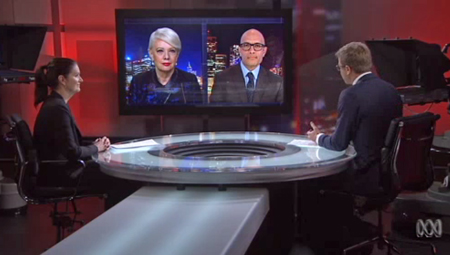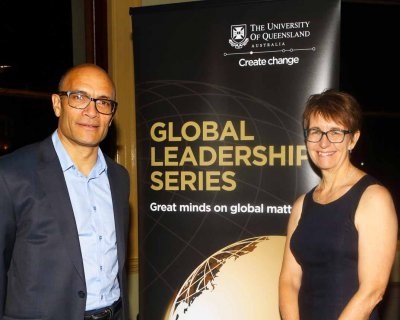Inequality
Our inequality research spans all areas of Institute research to examine how systems of inequality and disadvantage arise, and how they can be addressed to improve social and economic outcomes.
ISSR takes a particular interest in social mobility, focusing on areas of an individual’s life that can be leveraged to improve social and economic outcomes, such as education and employment. We also investigate the determinants of disadvantage and wellbeing to uncover the characteristics that influence a person’s ability to make constructive changes.
ISSR Director joins Lateline panel discussion on the Priority Investment Approach to Welfare

Should Australians lose their welfare benefits if they don’t comply with the government’s new welfare rules?
That was the question put to an expert panel including ISSR Director, Professor Mark Western, on Lateline on Friday 23 September 2016.
Professor Western joined host David Lipson, Sally Sinclair, CEO of the National Employment Services Association and Dr Cassandra Goldie, CEO of the Australian Council of Social Service to discuss the government’s recently announced Priority Investment Approach to Welfare.
Watch the ABC Lateline vodcast
Welfare dependency or inherited disadvantage?
Are hard work and individual effort enough to help a person break free from a life of disadvantage, or are there systemic inequalities that prevent some people from becoming the masters of their own destiny?
ISSR's Director, Professor Mark Western, and the Life Course Centre's Director, Professor Janeen Baxter, discussed these questions with a public audience at The University of Queensland’s Global Leadership Series public lecture on Wednesday 16 November, where they provided insights into tried and tested interventions that have been making inroads to even out the playing field.
Learning catalysts: Improving educational outcomes for disadvantaged children
 The Learning Catalysts project investigates factors associated with educational success based on a study of 34,000 disadvantaged young people and their families. The project aimed to examine the circumstances of disadvantaged young people and their families, identify factors contributing to improved educational outcomes and address the objectives of the partner organisation, the Smith Family (TSF), to support educational outcomes.
The Learning Catalysts project investigates factors associated with educational success based on a study of 34,000 disadvantaged young people and their families. The project aimed to examine the circumstances of disadvantaged young people and their families, identify factors contributing to improved educational outcomes and address the objectives of the partner organisation, the Smith Family (TSF), to support educational outcomes.
We employed an innovative approach that combines the analysis of detailed administrative data on TSF Learning for Life (LFL) scholarship holders and their families, student achievement data from school reports, a purpose-built supplementary survey and in-depth qualitative interviews.
Social Networks & Health & Wellbeing
Social science and social policy increasingly recognise that people’s family, friendship and other networks matter for their health and well-being. But it remains unclear why networks are important and what kinds of positive and negative effects they might have.... Read more
Utilisation of Social Science Research
Academics lament that policy-makers ignore their research, while policy decision-makers argue that academic research is largely irrelevant to their needs. This project aims to reconcile these two positions by investigating social science research utilisation within public sector agencies.... Read more
The impact of the place of living on social participation and wellbeing in older age
This study explores the links between place of living, social participation and wellbeing at older age using data from large-scale panel surveys covering Australia and other countries. Environmental conditions, such as housing and neighbourhood conditions, can impact on societal participation by older people.... Read more

